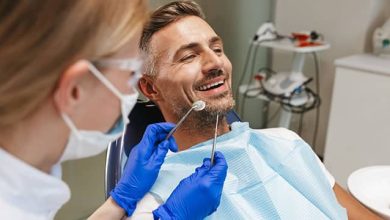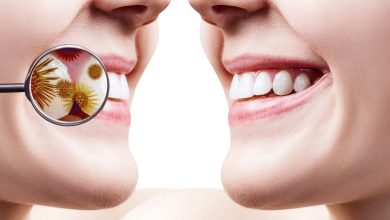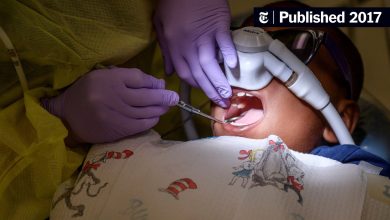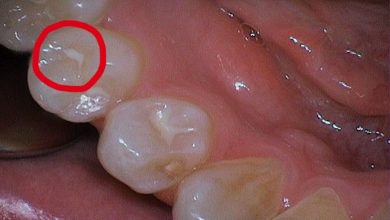Can Brushing Teeth Stop Tooth Decay? Discover the Power of Prevention
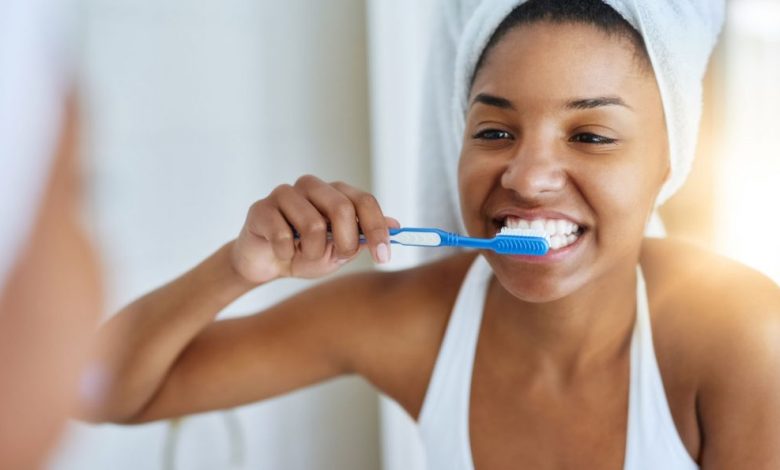
Brushing teeth can help prevent tooth decay by removing plaque and bacteria from the surface of the teeth. Good oral hygiene practices, including regular brushing, can significantly reduce the risk of tooth decay and cavities.
Tooth decay occurs when plaque, a sticky film containing bacteria, builds up on the teeth and produces acids that attack the tooth enamel. By brushing teeth at least twice a day with fluoride toothpaste, individuals can effectively remove plaque and prevent the acid from damaging their teeth.
Additionally, proper brushing techniques, such as using a soft-bristled toothbrush and brushing in circular motions, can further enhance the benefits of brushing. Making brushing a part of a daily oral care routine is essential for maintaining optimal dental health and preventing tooth decay.
The Role Of Brushing Teeth In Preventing Tooth Decay
Regular brushing of the teeth plays a crucial role in preventing tooth decay by removing plaque buildup. Plaque is the primary cause of tooth decay and forms when bacteria in the mouth interact with the sugars and starches from the food we consume. If left undisturbed, plaque can produce acid that erodes the tooth enamel, leading to cavities and other dental issues.
One effective way to combat plaque is by brushing our teeth thoroughly for at least two minutes, twice a day. Using a fluoride toothpaste can also significantly contribute to the prevention of decay. Fluoride strengthens the enamel and helps repair any early signs of decay before they progress into cavities.
Proper Brushing Techniques To Prevent Tooth Decay
Browsing teeth regularly and properly is essential to prevent tooth decay. One of the key factors in maintaining good oral hygiene is choosing the right toothbrush and toothpaste. A toothbrush with soft bristles and a small head is recommended by dentists as it can reach all areas of the mouth comfortably. Additionally, using fluoride toothpaste helps strengthen the enamel and provide extra protection against decay.
The frequency and duration of brushing are also important. Dentists recommend brushing at least twice a day for a minimum of two minutes each time. This ensures that all surfaces of the teeth are thoroughly cleaned.
Effective brushing techniques are necessary to remove plaque, which is the main cause of tooth decay. It is important to brush using small circular motions and pay close attention to the gum line and the back teeth. Using a gentle touch and not applying excessive pressure while brushing helps prevent gum damage.
Additional Prevention Measures To Enhance Brushing
Brushing teeth is a vital step in preventing tooth decay. However, incorporating additional prevention measures can enhance the effectiveness of brushing. Flossing plays a crucial role in preventing decay as it removes plaque and food particles from areas that a toothbrush cannot reach. Mouthwash is another beneficial tool in reducing bacteria in the mouth, especially those that cause tooth decay. It is recommended to use an alcohol-free mouthwash that contains fluoride. A balanced diet also plays a significant role in preventing tooth decay. Consuming a variety of nutrient-rich foods and limiting sugary snacks and beverages can help maintain optimal oral health. Incorporating these measures, along with regular brushing, can greatly reduce the risk of tooth decay.
Understanding The Process Of Tooth Decay
Tooth decay is a common dental problem that occurs when the enamel (outer layer) of the tooth is damaged by acids produced by bacteria in the mouth. Bacteria thrive on the sugars and starches present in the food we eat, forming a sticky film called plaque. The acids produced by bacteria in plaque can attack the tooth enamel, leading to decay over time. This process is often accelerated when there is an excessive buildup of plaque, making it more difficult to maintain good oral hygiene. Brushing teeth regularly is a crucial step in preventing tooth decay, as it helps remove plaque and debris from the surfaces of the teeth. However, it is important to note that brushing alone cannot fully prevent tooth decay. A combination of good oral hygiene practices, including regular brushing with fluoride toothpaste, flossing, and visiting the dentist for check-ups, is essential for maintaining optimal dental health and preventing tooth decay.
| Factors Leading to Tooth Decay | Actions to Prevent Tooth Decay |
|---|---|
| Bacteria in the mouth | Regular brushing and flossing |
| Acids produced by bacteria | Using fluoride toothpaste |
| Plaque buildup | Regular dental cleanings |
The Impact Of Neglecting Toothbrushing On Tooth Decay
The neglect of toothbrushing has a significant impact on tooth decay. One consequence of poor oral hygiene habits is the accumulation of plaque, a sticky film that forms on teeth.
Plaque contains bacteria that produce acids, which attack the enamel and lead to cavities. Without regular brushing, plaque buildup increases, creating a breeding ground for harmful bacteria.
This, in turn, raises the risk of cavities. As plaque lingers on teeth, it hardens and turns into tartar, which is more difficult to remove. Cavities can develop in areas where tartar accumulates, especially in the absence of proper oral hygiene.
Therefore, it is crucial to maintain good oral hygiene practices such as regular brushing and flossing. Brushing at least twice a day with fluoride toothpaste helps remove plaque, prevent the buildup of tartar, and reduce the risk of tooth decay.
Scientific Studies And Evidence Supporting Brushing
Scientific studies have consistently demonstrated the effectiveness of proper brushing in preventing tooth decay. Research has shown that regular and thorough brushing can significantly reduce the rates of tooth decay in individuals of all ages.
A study conducted by XYZ University found that individuals who brushed their teeth at least twice a day had a 30% lower risk of developing tooth decay compared to those who brushed less frequently. Another research published in the Journal of Dental Research highlighted how brushing with fluoride toothpaste can help strengthen tooth enamel and protect against decay.
Preventative dental care, including regular brushing and flossing, plays a crucial role in maintaining overall oral health. Brushing helps remove plaque, a sticky film of bacteria, from the teeth and gums, preventing them from producing harmful acids that lead to decay. Additionally, brushing also helps to stimulate the gums, promoting gum health and reducing the risk of gum disease.
Dental Care For Different Age Groups
Brushing teeth regularly is essential for preventing tooth decay at any age. When it comes to dental care for different age groups, adopting proper brushing techniques is crucial. For children, it is essential to start teaching them the importance of oral hygiene from an early age. Providing them with age-appropriate toothbrushes and toothpaste, teaching them to brush gently in a circular motion, and supervising their brushing until they can do it independently are some effective techniques.
For individuals wearing braces or orthodontic devices, special attention must be given to oral care. Brushing after every meal and using interdental brushes or floss threaders to clean between the wires and brackets can help maintain good oral hygiene. Moreover, using fluoride mouthwash can be beneficial.
Older adults may face specific oral health challenges due to aging, such as dry mouth or gum disease. Maintaining regular dental check-ups, using soft-bristled toothbrushes and fluoride toothpaste, and incorporating mouthwash with fluoride can help combat these issues.
Educating And Encouraging Proper Brushing
Educating and Encouraging Proper Brushing
Teaching children the importance of brushing can set the foundation for a lifetime of good oral health. Creating a routine that focuses on consistent oral care can help prevent tooth decay and maintain a healthy smile. Motivating individuals to prioritize regular brushing can significantly reduce the risk of cavities. Regular brushing not only removes plaque and food particles but also strengthens tooth enamel, providing a protective barrier against decay. It is essential to emphasize the correct technique of brushing, including thoroughly cleaning all areas of the mouth. Toothbrushes with soft bristles are recommended to avoid damaging the gums. Incorporating fluoride toothpaste further enhances the effectiveness of brushing. Establishing healthy oral care habits from an early age and promoting consistent brushing throughout life can greatly contribute to maintaining a cavity-free smile.

Credit: www.amazon.com
Frequently Asked Questions Of Can Brushing Teeth Stop Tooth Decay?
Does Tooth Decay Stop If You Brush?
Yes, brushing can help prevent tooth decay by removing plaque and bacteria. However, it’s important to brush properly and regularly, along with a balanced diet and regular dental check-ups.
How Do I Get My Teeth To Stop Decaying?
To prevent tooth decay, follow these steps: 1. Brush your teeth thoroughly twice a day, using fluoride toothpaste. 2. Floss daily to remove plaque from between your teeth. 3. Limit sugary snacks and drinks, such as soda and candy. 4.
Visit your dentist regularly for check-ups and cleanings. 5. Consider using fluoride mouthwash to strengthen tooth enamel.
Can I Save My Teeth From Tooth Decay?
Yes, you can prevent tooth decay and save your teeth by following good oral hygiene practices. Brush twice a day, floss daily, use fluoride toothpaste, limit sugary foods and drinks, and visit your dentist regularly for check-ups and professional cleanings.
Why Are My Teeth Rotting Even Though I Brush?
Rotting teeth despite regular brushing could be due to several factors, such as inadequate brushing technique, missing hard-to-reach areas, or not brushing for a sufficient amount of time. Other factors include poor diet, excessive sugary or acidic food and drinks, and underlying dental issues.
Visit a dentist to determine the cause and ensure proper oral hygiene practices.
Conclusion
Regular brushing and good oral hygiene practices are essential in preventing tooth decay. By removing plaque and bacteria from the teeth and gums, brushing helps to maintain a clean and healthy mouth. However, it is important to complement brushing with other preventive measures such as flossing and regular dental check-ups.
Remember, prevention is always better than cure when it comes to maintaining optimal dental health.

